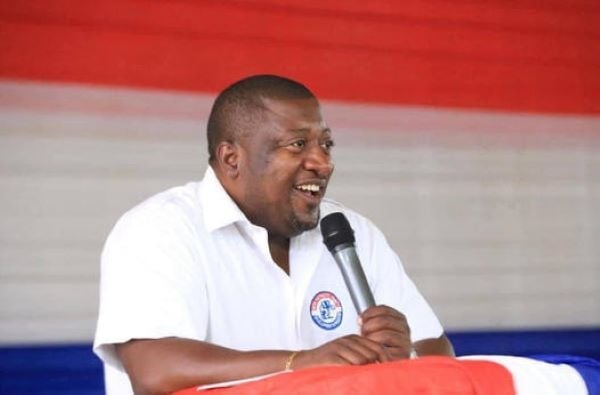The resounding defeat of the New Patriotic Party (NPP) in the 2024 general elections has spurred introspection and a reshuffling of priorities within the party’s leadership. Henry Nana Boakye, widely recognized as Nana B, the outgoing National Organiser of the NPP, has declared his intention to step down from his position and not seek re-election. This announcement comes as the party grapples with the aftermath of the electoral loss, analyzing the factors that contributed to their unexpected downfall. Nana B’s decision reflects a sense of responsibility for the party’s performance and a commitment to facilitating the NPP’s recovery and future success.
Nana B’s tenure as National Organiser coincided with a challenging period for the NPP. The 2024 elections saw the party lose significant ground, particularly in their traditional stronghold, the Ashanti Region. While the NPP still secured a majority of votes in the region, the 63.9% achieved fell considerably short of their ambitious 85% target. This underperformance, coupled with losses in other key areas, ultimately contributed to the party’s overall defeat. Nana B has openly accepted responsibility for this outcome, emphasizing that accountability is paramount, especially in the face of adversity. His willingness to step aside allows for fresh perspectives and leadership to emerge as the NPP navigates its rebuilding phase.
The focus for Nana B, and indeed the entire NPP, has now shifted towards understanding the reasons behind the electoral setback and formulating strategies for future success. Nana B has stressed the importance of a thorough and introspective analysis of the party’s performance. He believes that assigning blame at this juncture would be counterproductive, advocating instead for a collective effort to identify the weaknesses within the party’s structure, campaign strategies, and connection with the electorate. This self-critical approach, he argues, is crucial for rebuilding trust and regaining momentum for the 2028 elections.
A key aspect of the NPP’s rebuilding process will involve re-energizing the party base and strengthening its organizational structure. Nana B has highlighted the need to reposition the party within the evolving political landscape, adapting to changing demographics and voter preferences. This entails not only revisiting the party’s core message and policy platform but also strengthening grassroots engagement and fostering a renewed sense of unity within the party ranks. Re-organizing the party machinery will be essential for effective mobilization and voter outreach in future elections.
The electoral defeat presents an opportunity for the NPP to learn from its mistakes and emerge stronger. Nana B’s decision not to seek re-election signifies a willingness to make way for new leadership and fresh ideas. He has emphasized that his priority is to contribute to the party’s revitalization, drawing on his experience and insights to help chart a successful course for the future. This period of reflection and reorganization will be critical for the NPP to regain its footing and present a compelling vision to the electorate in the years ahead.
The task before the NPP is significant, requiring a comprehensive reassessment of its strategies, message, and internal dynamics. The party must address the concerns that led to its decline in support and rebuild trust with voters who may have shifted their allegiances. Nana B’s decision to step down is a symbolic gesture, indicating a willingness to embrace change and prioritize the party’s long-term success over individual ambitions. The next few years will be crucial for the NPP to demonstrate its capacity for renewal and its ability to connect with the electorate on a deeper level. The 2028 elections will serve as a crucial test of the party’s resilience and its ability to learn from the lessons of the 2024 defeat.


